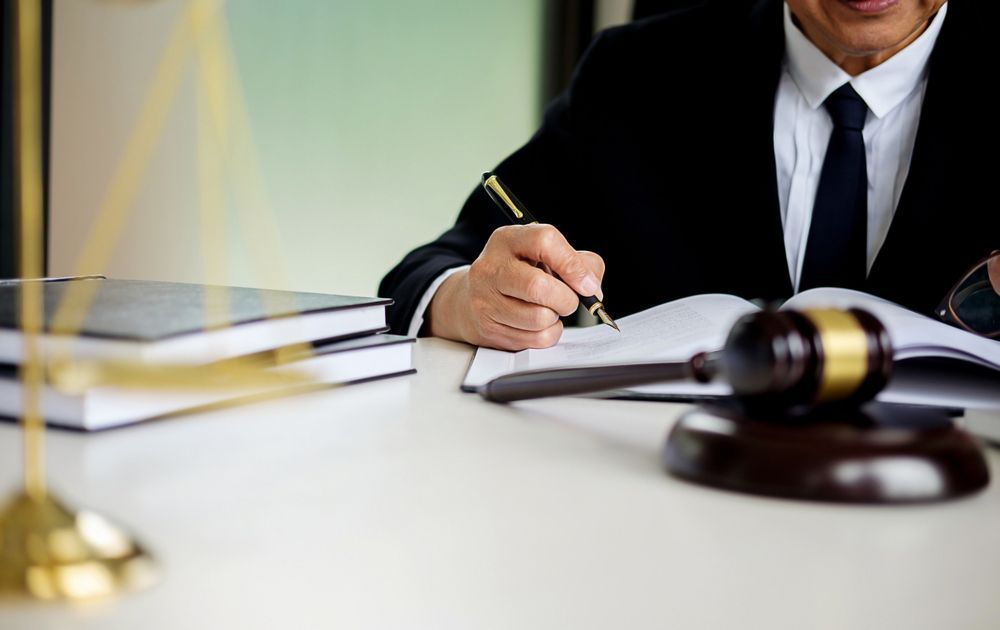Assault Lawyer Townsville
- Over 25 Years of Practicing Experience
- Crime Line Open and Available 24/7
- Legal Advice On Any Criminal Law Matter
Connect with Our Legal Team Today
Contact Us
Criminal Lawyers For Assaults & Violent Offences
What To Do When Arrested in Relation to an Alleged Assault
If arrested in relation to an alleged assault, it is wise not to make a statement or answer any questions without having first sought advice from an experienced criminal lawyer.
The only obligation to police is to provide your basic personal information and contact details. ATL strongly advises remaining silent because what you say could be used against you. Do not make any statements but call our
Townsville lawyers for expert legal advice.
Consulting with your lawyer before taking any other step is the best way to maximise your chance of a positive outcome. That is why ATL has established a 24/7 crime line
0418 762 728 and urges its clients to freely use it, day or night.
What is an assault and what are the types?
Assault is defined in section 245 of the Queensland Criminal Code Act 1899 as “a person who strikes, touches, or moves, or otherwise applies force of any kind to, the person of another, either directly or indirectly, without the other person’s consent”.
Indirect application of force includes the application of light, heat, electricity, smell or any substance that causes injury or personal discomfort.
Assault offences are the most common offences of violence. There are a number of different offences which include:
- Common assault
- Assault occasioning bodily harm (aggravated by being armed or in company)
- Grievous bodily harm
- Choking in a Domestic Setting
- Obstruction or assault of a police officer
- Serious Assault
- Wounding
The reason these are called “assault type offences” is that some of the more serious offences may involve an assault, but assault is not an element that needs to be proved.
Importantly from a legal perspective, being convicted in a criminal court can also lead to you being
sued civilly for common law torts such as “assault” and “battery”.
These are different from criminal proceedings, but failure to get proper advice in relation to a criminal charge can have potential civil consequences later.
The type of assault and other specifics of your case are essential when preparing a defence strategy.
What is considered to be a "Common Assault"?
Many people think that common assault which can be as simple as a push to the chest, is a minor offence. Compared with others in the Criminal Code it is least serious of all the assault categories, however it is an indictable offence which puts it up there in the serious category of criminal offences.
A common assault can include shoving another person and also punching, slapping or kicking them without causing injury. A common assault charge carries a maximum penalty of three years imprisonment in Queensland.
A common assault can be shoving another person and also punching, slapping or kicking them.
Depending on the severity of the charge of common assault, penalties can range from good behaviour bonds, fines, probation, community service and terms of imprisonment.
What is considered to be a "Serious Assault"?
These are the same as Common Assaults but attract a much higher penalty because of the category of the victim. A serious assault charge carries a maximum penalty of 7 years imprisonment.
Not everyone can be a victim of a serious assault, there are a number of categories, some common examples are;
- Elderly persons over the age of 60
- Blind or disabled persons
- A police officer whilst in the execution of their duties
In the case of assaults on police if the assault involves spitting or transmitting any bodily fluid, causes bodily harm or a weapon is used a greater maximum penalty of up to 14 years is applied.
The police will decide if the matter remains in the Magistrates Court or proceeds to the District
Court.
These types of offences are treated very seriously by the courts. Even youthful first time offenders with no criminal history are at very real risk of going to prison if convicted of a Serious Assault.
What is an Assaults Occasioning Bodily Harm?
Unlike common assaults, these assaults cause injuries of various severity. These include scratches, cuts, bruises, swelling and broken bones. If these are the result of applying force to another person or striking, moving or touching them without their consent, the victim has the right to press charges.
This is a step up from a common assault in the terms of seriousness. It is effectively a common assault that results in injury to a victim that is not permanent or does not result in serious disfigurement.
A person convicted of assault occasioning bodily harm can be liable for up to a maximum of seven years imprisonment.
The penalty is increased to 10 years if it involves more than one person and/or the use of a weapon or offensive implement to cause the injury.
A greater penalty will also be imposed if it is a Domestic Violence offence.
If you are charged with an Assault Occasioning Bodily Harm, a period of imprisonment is not a sentence of last resort. We strongly urge that you get early legal advice about your options moving forward as depending on the nature and seriousness, you may be able to elect for the matter to be heard and determined in the District Court before a jury.
What is wounding?
This involves an attack or incident in which the true skin of the victim is broken by cutting or stabbing by an implement or weapon that is likely to cause that result.
This is not considered to be an assault and the prosecution do not need to prove that an assault occurred. The injury cannot be Grievous Bodily Harm and the victim must survive the attack.
The maximum penalty for wounding is 7 years imprisonment. This offence cannot be dealt with in the Magistrates Court and must proceed to the District Court. A conviction for this offence will generally result in a period of imprisonment.
A very serious and very specific type of offence is choking in a domestic setting. This is not
considered to be an assault.
It is a distinct and separate offence that was recently enacted in Queensland to specifically target perpetrators of Domestic Violence offences. It requires choking or strangulation and a domestic relationship to exist between the parties.
The maximum penalty for choking is 7 years imprisonment. It cannot be dealt with in the Magistrates Court and must proceed to the District Court. A conviction for this offence will generally result in periods of imprisonment being imposed.
What is Grievous Bodily Harm?
Grievous bodily harm is a very serious offence of violence. But it is not categorised as an assault. It involves situations in which the victim suffers serious disfigured or suffers permanent injury or endangers an individual's life.
The maximum penalty for a charge of grievous bodily harm is fourteen years imprisonment. This charge cannot be dealt with in the Magistrates Court and a conviction for this charge will generally result in lengthy periods of imprisonment.
This is an extremely serious example of assault and can only be finalised in the District Court of Queensland.
Section one of the Criminal Code defines grievous bodily harm as follows:
- The loss of a distinct part or an organ of the body; or
- Serious Disfigurement
- Any bodily injury of such a nature that, if left untreated, would endanger or be likely to endanger life, or cause permanent injury to health.
Whether or not treatment is or could have been available.
If police officers are performing their duties, it is an offence to assault them. You do not have to assault an officer to be charged. It is enough to obstruct them in any way.
Assaults and obstructions occurred on licensed premises come with potential fines of up to $7560 and imprisonment of up to 12 months. If the offence occurred outside of licensed premises, six months' imprisonment and a fine of up to $5040 can be imposed.
Our lawyers will carefully listen to the specifics of your case and advise the best defence strategy. The available defences include, but are not limited to, self-defence, necessity, provocation and accident.
Do not hesitate to give
Anderson Telford Lawyers a call as soon as you are charged with assault or are questioned by police.








